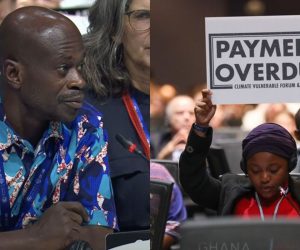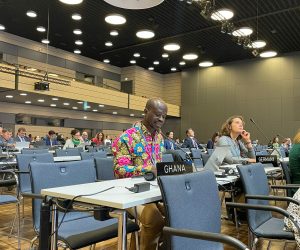
Climate Vulnerable Forum Leaders Dialogue COP26
4:15 – 6:15 pm 2 November 2021 – UNFCCC COP26, Glasgow, Scotland
Intervention by H.E. Fredy Chiroy
Hon. Vice Minister of Climate Change and Natural Resources of Guatemala
GENERAL GREETING
Distinguished participants, receive a cordial greeting from Guatemala, as well as from the President Dr. Alejandro Giammattei and the Minister of Environment and Natural Resources, Mario Rojas Espino.
Guatemala has a wide natural and cultural wealth, it is among the 19 most megadiverse countries in the planet, with 33.7% of its territory covered by forests. Its native forests contribute significantly to the livelihoods of local populations and around a third of the national territory has been declared a protected area and counts with a great variety of ecosystem goods and services.
The multicultural wealth of the country and the traditional and ancestral knowledge of its people, represents an opportunity to respond to the impacts of climate change.
However, as is known worldwide, the Central American countries and especially Guatemala, have suffered in recent years, serious consequences because of climate variability; especially due to hydrometeorological events resulting from climate change, which has significantly affected the economic and social development of our communities.
In Guatemala, economic losses due to climate impacts range from 1.3% to 3.7% of our annual GDP, with great repercussions in the main productive sectors of the country, impacting the health of the population, our ecosystems, putting the food security and other sectors of development at risk, including most importantly, the loss of human life.
The Global Climate Risk Indexes permanently place us, among the first places of vulnerability, and as one of the countries most affected by the impacts of climate change. The Third National Communication on Climate Change of Guatemala, reports that the country occupies the position sixteen out of one hundred and eighty countries, in terms of economic losses and deaths due to extreme weather events, and according to the Climate Change Vulnerability Index for Latin America, Guatemala ranks second in the list.
It is estimated that during the last three decades, the economic losses for Guatemala were greater than 5.600 million dollars. The last events that impacted the national territory, the tropical depressions Eta and Iota, left economic losses of around 780 million dollars and 1.8 million people affected.
These events have had a negative impact on the living conditions and have impacted the displacement of populations to other parts of the country or outside of it.
In Guatemala we are convinced of the importance of climate action. For this reason, environmental protection, natural resource management and the fight against the effects of climate change have been a priority of the government and we have focused our efforts in the fulfilment of international commitments.
We have worked hard to comply with the Legal Framework on Climate Change and everything stipulated in it, especially regarding vulnerability and adaptation, we have also developed the National Adaptation Plan, monitoring its compliance, through the different projects were we have identified the most vulnerable regions and have prepared adaptation plans in a participatory manner, including gender considerations and inclusion of indigenous peoples.
Given the evidence of the climate risk that our country faces, it imposes great challenges on us to increase the adaptive capacity of the most vulnerable communities, which is why the mobilization of resources and means of implementation post-COVID19 is considered essential.
To achieve the objectives and promote compliance with the Sustainable Development Goals, Agenda 2030, it is essential to guarantee the financial and technical conditions in terms of resilience, the capacity to adapt and mitigate climate change.
Finally, we are aware of the importance of promoting different spaces where common problems are analysed, such as the Vulnerability Forums, through which countries become aware that the effects of climate change are experienced disproportionately and that for us, the most vulnerable countries, it imposes important challenges that we must solve, seek innovative alternatives to reduce climate vulnerability and fight to achieve sustainable development.
Thank you.



